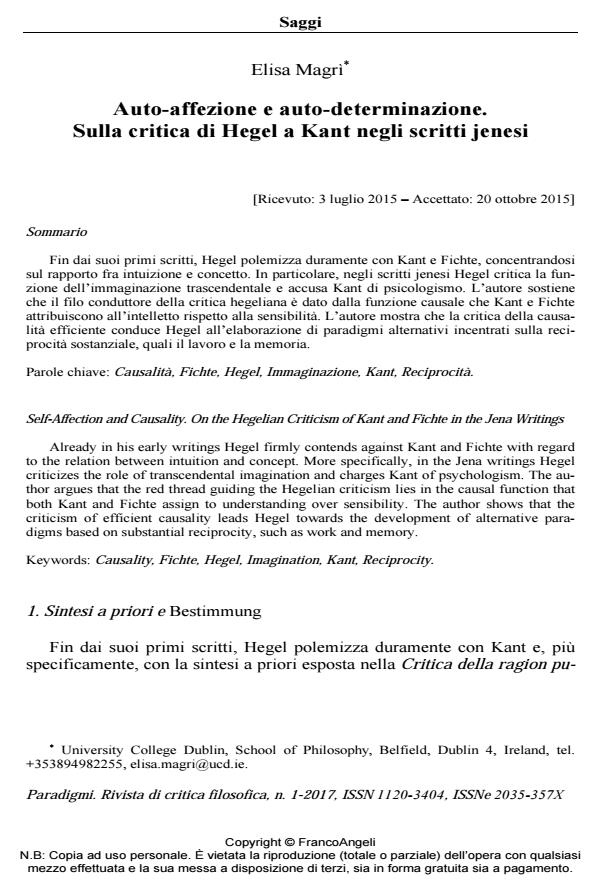Self-Affection and Causality. On the Hegelian Criticism of Kant and Fichte in the Jena Writ-ings
Journal title PARADIGMI
Author/s Elisa Magrì
Publishing Year 2017 Issue 2017/1
Language Italian Pages 20 P. 178-199 File size 225 KB
DOI 10.3280/PARA2017-001013
DOI is like a bar code for intellectual property: to have more infomation
click here
Below, you can see the article first page
If you want to buy this article in PDF format, you can do it, following the instructions to buy download credits

FrancoAngeli is member of Publishers International Linking Association, Inc (PILA), a not-for-profit association which run the CrossRef service enabling links to and from online scholarly content.
Already in his early writings Hegel firmly contends against Kant and Fichte with regard to the relation between intuition and concept. More specifically, in the Jena writings Hegel criticizes the role of transcendental imagination and charges Kant of psychologism. The author argues that the red thread guiding the Hegelian criticism lies in the causal function that both Kant and Fichte assign to understanding over sensibility. The author shows that the criticism of efficient causality leads Hegel towards the development of alternative paradigms based on substantial reciprocity, such as work and memory.
Keywords: Causality, Fichte, Hegel, Imagination, Kant, Reciprocity.
Elisa Magrì, Auto-affezione e auto-determinazione. Sulla critica di Hegel a Kant negli scritti jenesi in "PARADIGMI" 1/2017, pp 178-199, DOI: 10.3280/PARA2017-001013